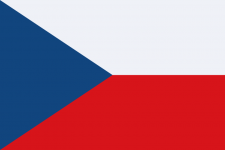
In June 2022, the Ministry of Labour and Social Affairs of the Czech Republic conducted a survey on the living conditions of Ukrainians who arrived in the Czech Republic after 24 February (the date of the invasion of Ukraine by Russian troops).
Image and text source: Ministry of Labour and Social Affairs 2022.
The Czech Republic has accepted 390 000 refugees from Ukraine so far, making it the third most common European Union (EU) destination for Ukrainians fleeing their country, and the country with the highest number of Ukrainian refugees per 100 000 inhabitants.
The Ministry of Labour distributed an online questionnaire to 65 145 refugees applying for humanitarian benefits and was able to collect data on 50 236 of them, 29 012 of whom were adults and 21 224 of whom were children. This data has been supplemented by data from the Labour Office on applicants for humanitarian benefits, the Ministry of Labour on the employment of foreign workers, the Foreigners Information Systém (CIS), Frontex and other sources.
Main survey findings
The survey finds that among refugee newcomers to the Czech Republic from Ukraine, 44% are women and 36% are children. In terms of age, three-quarters of adult refugees from Ukraine are under 45 years old, with 28% of these being under 30 years old. The share of Ukrainian newcomers that are university graduates is two times higher (35%) than in the Czech population (17.6%). This means that newcomer refugees from Ukraine are bringing considerable development potential to the Czech Republic.
The most common type of Ukrainian refugee family in the Czech Republic is a mother with one child. The largest proportion of Ukrainian refugee families (44 %) live in households of people who provide accommodation in solidarity with refugees. A further 24% live in rental or subleased accommodation, and 15% (58 000 people) live in lodging houses. Over 70% of households providing accommodation in solidarity with refugees are Czech, and 28 % are Ukrainian. A further 24% live in rental or subleased accommodation, and 15% (58 000 people) live in lodging houses. Over three-quarters of refugees surveyed said that they are satisfied with their accommodation. 39% have been able to secure accommodation for 6 months or more, with only 6% saying they have found accommodation for a period of less than 2 months.
The survey findings also make it clear that refugees arriving from Ukraine need help with learning the Czech language. Their language competences in Czech and English are found to be generally low, but almost one third of respondents report having at least some knowledge of Czech.
More than half of the refugees surveyed are economically active, with three-quarters of these responding that they perceive their work as permanent. However, most of them (80%) are working in low-skilled occupations and it is therefore not possible exploit their professional potential.
Approximately 75% of those surveyed report that they are in a 'very unsatisfactory' or 'critical' financial situation. Less than 0.5% say that they are 'well-off'. Refugees living in lodging houses face the worst financial situation: half report that they cannot cope with their financial situation and urgently need help.
Details
- Authors
- Magdaléna Klimešová, Jiří Šatava, Michal Ondruška (Ministry of Labour and Social Affairs)
- Geographic area
- Czech Republic
- Contributor type
- National governmental actor
- Original source
- Posted by
